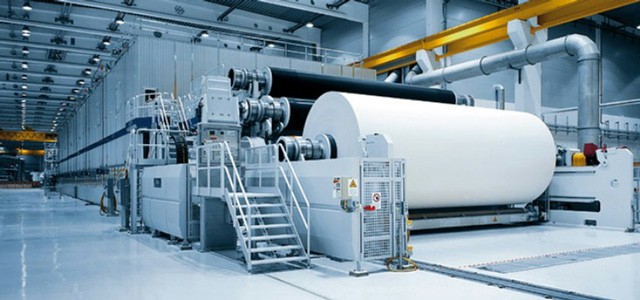Most Popular
In the fast-paced world of paper manufacturing, achieving optimal efficiency and unwavering reliability is of utmost importance. In the face of growing competition and the need for greater efficiency, Reliability-Centered Maintenance (RCM) stands out as a promising solution. RCM offers a game-changing approach to maintenance that not only maximizes equipment performance but also drives continuous improvement processes.
RCM: A New Approach to Maintenance Strategy
In the past, maintenance in paper mills has typically been reactive, following a philosophy of only fixing things when they break. This approach to caretaking, although well-known, has proven to be insufficient in meeting the requirements of contemporary manufacturing environments. Amidst this context, RCM presents a rejuvenating option. With a strategic approach that prioritizes reliability, RCM empowers mills to proactively address equipment failures, guaranteeing seamless production and optimizing efficiency.
The Importance of RCM in the Paper Industry
Having a comprehensive grasp of equipment functions, potential failures, and their effects on operations is crucial for success in RCM. This approach emphasizes the importance of safety and production efficiency, while also promoting environmental stewardship. By conducting a thorough examination of equipment and systems, RCM pinpoints essential maintenance tasks such as inspection, lubrication, or replacement that are vital for maintaining optimal system performance. With this approach, RCM assists paper mills in effectively managing their expenses while enhancing production reliability.
Unleashing the Power of RCM: A Game-Changing Approach
By implementing RCM, paper mills can gain a competitive advantage that goes beyond traditional maintenance practices. In Southeast Asia, for example, mills with cutting-edge machinery utilize RCM to achieve impressive levels of reliability and efficiency, establishing new industry standards. These mills demonstrate the power of RCM and root cause analysis (RCA) in driving substantial enhancements in quality, capacity, and overall market competitiveness.
A Practical Approach to RCM Implementation
Starting the implementation of RCM in a paper mill involves the initial step of identifying the equipment that is crucial for smooth operations. Understanding how the equipment functions, setting performance expectations, and considering the potential consequences of failure are key factors in determining priorities. This assessment provides valuable insights into both maintenance priorities and potential areas for process enhancements. By implementing RCM strategies, you can effectively address the recurring failures of a pump's mechanical seal. This approach not only extends the service life of the pump but also enhances its performance while reducing maintenance costs.
Achieving Long-Term Success: The Importance of Root Cause Analysis (RCA)
The strong connection between RCM and RCA is truly remarkable. RCA is a powerful tool for driving continuous improvement, guaranteeing that problems are not only identified, but also effectively resolved. With a focus on fostering a culture of inquiry and problem-solving, RCA complements RCM's technical rigor, making maintenance a vital part of achieving operational excellence.
Embracing RCM: A Call to Action for Paper Mills
Embracing RCM and RCA presents a journey filled with challenges and opportunities. Initiating these programs is simple, but their ongoing prosperity necessitates dedication, flexibility, and a readiness to make long-term investments in the maintenance of equipment and systems. To attract companies, it is crucial for paper mills to break away from conventional maintenance practices and embrace a journey of constant improvement.
RCM as the Future of Maintenance in Paper Mills
With RCM as your strategic ally, paper mills worldwide can meet the ever-increasing demands of production efficiency and reliability. With its comprehensive approach to maintenance management, this system guarantees top-notch equipment performance while promoting a strong focus on safety, sustainability, and ongoing enhancement. By implementing RCM, mills have the opportunity to revolutionize maintenance practices, turning them into a strategic advantage that drives operational excellence and sets them apart from the competition.
